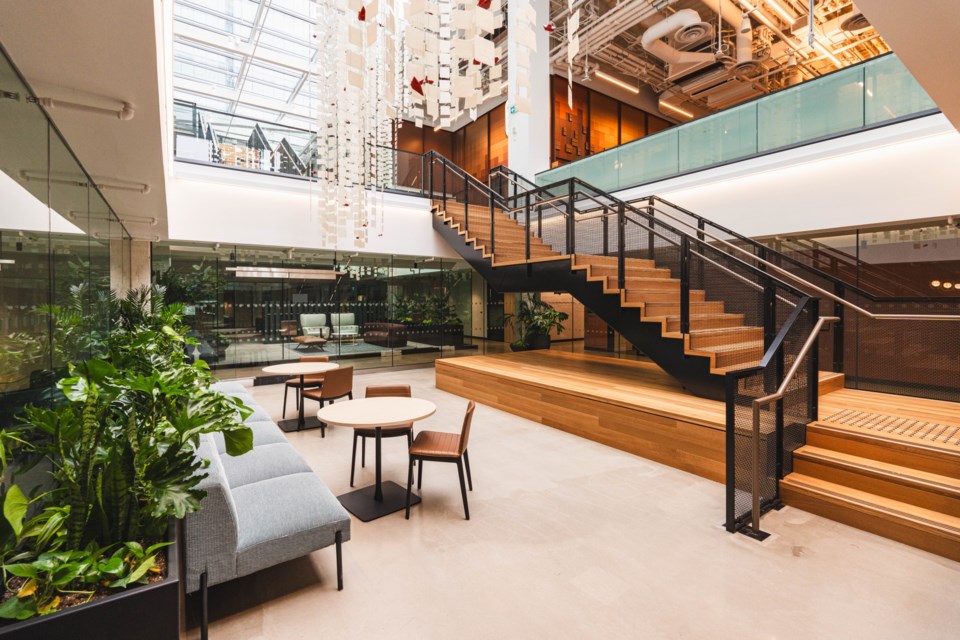Metro Vancouver boasts the largest workforce in the province, with three million of the province’s 5.5 million residents last year.
Despite low unemployment, the story of the region isn’t one of high growth but resilience as sectors continue to adapt in the aftermath of the pandemic, high interest rates and caps on visas for international students.
When Amazon.com Inc. began occupying the south tower at the Post on West Georgia Street a year ago, concerns about slowing growth and economic headwinds in the local tech sector seemed a thing of the past.
But some experts believe that tech, long considered a leading demand driver in Metro Vancouver’s office market, is now taking a back seat to education, health care and financial services.
“Tech was the strongest demand driver in the market leading up to COVID and certainly coming out of COVID,” said Kirk Kuester, executive managing director with Colliers Vancouver. “As the economy slowed and interest rates started to move, they probably fell right back to third or fourth place. Technology has been replaced, kind of, by education, health care, financial services and professional services.”
Colliers said at least nine education-sector clients are looking for more than 300,000 square feet. Most recently, University Canada West took around 100,000 square feet in B6, BentallGreenOak’s newly completed 534,000-square-foot tower at 1090 West Pender Street.
However, education occupiers are facing challenges of their own, as foreign student enrolment declines due to the federal government’s new cap on international student visas. This year’s international enrolment is expected to drop 35 per cent compared with last year.
“The federal government’s change in visa qualifications has certainly affected that industry quite significantly,” said Kuester.
Despite education’s new prominence, tech could climb back sooner rather than later. TikTok and Boomi recently signed leases at Three Bentall Centre, and Colliers is tracking 11 other mandates from the tech sector totalling more than 400,000 square feet.
Other sectors stabilizing
Other commercial sub-sectors are also stabilizing.
“Retail is holding up well, given the fact that it is somewhat under-supplied in relation to a growing population,” Kuester said.
Despite a choppy market over the past two and a half years, Mark Goodman, principal of Goodman Commercial Inc. said the worst is over for the apartment sector as investors seek opportunities in the region’s perpetually tight multi-family market.
“In the first eight months of 2024, we have already surpassed the full 12 months of sales volume in 2023 with over $1.1 billion in sales,” he said.
The multi-family sector is supported by long-term fundamentals like a growing population, a chronic shortage of apartments and rents that have been rising for decades.
Industrial market sound
The demand for industrial space that drove vacancies down and rental rates skyward from 2021 to 2023 has cooled, said Jason Kiselbach, managing director of B.C. operations for commercial real estate services firm CBRE.
In addition, significant new supply has come online, resulting in a better supply-demand balance.
“They’re coming off from all-time highs and escalations we have never seen in the history of the [industrial] market before,” Kiselbach said.
Development land, meanwhile, is being impacted by elevated construction costs and interest rates, as well as municipal and regional cost charges. Project revenues in the form of end unit sale prices or rental rates have come down, and supply is therefore contracting accordingly.
“Personally, I wonder and have a bit of concern that we’re pressing pause on so much development,” said Kiselbach. “What’s supply going to look like in another 12 to 24 months?”



